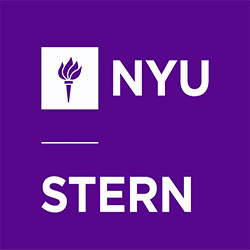Every week I have the opportunity to speak with prospective applicants about the Tech MBA program. Here are the top five questions that people ask:
1. How “Tech” do I need to be to complete this program?
I’m not a developer and don’t have an engineering background. My background has varied extensively. I’ve worked on teams with engineers, marketers, designers, and entrepreneurs in tech and non-tech companies. Ideally, you have a passion for technology and industry experience is a plus.
You will be required to learn basic Python as part of your early coursework and would be much better off if you spend some time to learn it on your own before joining your classmates on campus. There are several free resources to do so, my favorite is Codecademy. If you do arrive on campus without knowing Python, expect to spend some evening and weekends figuring it out – it’s not the end of the world, but I’d rather be out with friends on a rooftop in Brooklyn on a summer evening. If learning Python on your own time sounds daunting to you, the two-year MBA may be a better option.
Keep in mind, your application is reviewed holistically by the admissions committee and they will be able to determine if your technical prowess aligns with the Tech MBA class profile.
2. What is “tech” about the Tech MBA?
The Tech MBA is first and foremost an MBA. In essence, it is an accelerated business degree with a focus in technology. The degree contains a tech core that was designed with the Department of Computer Science at NYU’s Courant Institute of Mathematical Sciences and features technical classes that will teach you about networks, DevOps, and software engineering at a high level. On the business side, you will learn about technical product management and skills such as leveraging big data and business analytics. The tech classes don’t exist to teach you specific skills and technologies, but instead teach you how to think about technology, how it will change over time, how to harness it, and how to speak the language. Apart from that, we also partake in traditional business courses ranging from leadership to corporate finance and economics.
3. What is the recruiting process like when you’re finding a job?
I should start by saying that as a Tech MBA student, you can recruit for the exact same roles as the traditional two-year students. You will be in the same corporate presentations, application pools, and networking events. That being the case, your status as a Tech MBA student will resonate differently with different firms. I have interviewed with tech companies and “Big 4” consulting firms and based on the response of my interviewers, the Tech MBA has only made my candidacy stronger. It’s a great talking point and shows that you are serious about your interests and know your strengths. Many firms are seeking more technical candidates and view the Tech MBA as a key option to source top talent. Some industries and firms strongly prefer a two-year MBA, especially in finance, so make sure your career goals align with your MBA journey. Remember, companies are seeking qualified MBAs with a strong business acumen and EQ – that’s ultimately why they come to Stern.
4. Why did you pick the Tech MBA over the traditional two-year program?
As you may have read above, I have a passion for tech and knew that I wanted to work for a large tech company. Based on my goals, the Tech MBA was the best option for me and offered a really efficient way to get a top-ranked MBA in a shorter amount of time. Many of my colleagues in the two-year program are pivoting their careers – they may be changing industries entirely, exploring all of their options, or just taking the additional time to take electives and figure out what is best for them. I also have always been a “Type A” person and appreciated an efficient option to achieve my goals.
5. What do I lose by not completing an internship as part of my MBA?
I consider internships an opportunity to “test drive” a specific company or role, specifically by experiencing something that you’ve never done before. Many of the two-year MBA summer interns receive full-time offers to return upon graduation, however, many students also restart the recruiting process entirely. There are a handful of jobs that require a summer internship prior to receiving full-time offers, so do your research and reflect if an internship is something from which you would benefit. As a part of the Tech MBA curriculum, you will take an experiential learning course called, “Stern Solutions” during the fall semester. You will have the opportunity to work with a company for the duration of the semester and many of my classmates have seen this as a minor internship role. Some other classmates also intern with companies during the fall or spring semester if they have the time. Once you decide how important completing an internship is for you as part of your own MBA experience, it will help you narrow down your application choices. For me and my classmates in the Tech MBA, not completing an internship during our program has never been an issue.
I hope these questions and answers were useful! Please feel free to reach out to me and the other graduate ambassadors for Stern’s MBA programs at mbaga@stern.nyu.edu.
